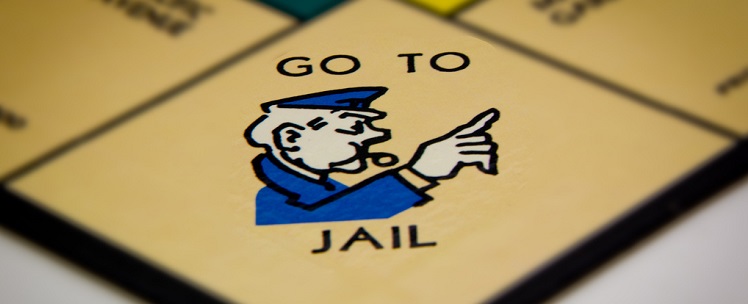-
 14 min. read
14 min. read
-
 Trevin Shirey
Trevin Shirey VP of Marketing
VP of Marketing
- Trevin serves as the VP of Marketing at WebFX. He has worked on over 450 marketing campaigns and has been building websites for over 25 years. His work has been featured by Search Engine Land, USA Today, Fast Company and Inc.
When you work in Internet marketing, you tend to hear a lot of myths about Google, and the penalties they issue to webmasters. Considering how often the search engine updates its algorithms and releases new updates, it’s no wonder there are so many Google penalty myths. All it takes is one well-meaning person to misread a Webmaster Tools message or post unconfirmed information, and the rumors spread from there.
If you’re new to the concept of Google penalties, or have only read a little on the subject, you may be under the impression that Google can (and does) punish everyone for everything. You may have heard about websites being taken out of search engine results for buying links, as jcpenney.com was exposed for doing a few years ago. Or you may have heard rumors that you can be de-indexed for accidentally duplicating your own content — or for other people duplicating yours.
Are these penalties fact or fiction? In this post, we’re going to take a look at some of the rumored penalties and algorithm updates discussed across the web, and do a little bit of myth-busting in the process.
By the time you’re finished reading, you should have a better idea of which penalties are real, which are simply best practices you should be aware of, and which are pure fiction. We’ll start by explaining the two types of penalties — algorithmic and manual — which should come in handy for those of you new to this subject. Let’s begin!
The Two Types of Google Penalties
Search engines, namely Google, can issue two types of penalties to those listed in its index: manual and algorithmic.
They can be defined as such:
- A manual penalty is a penalty applied by a human being that removes a website from search engine results pages (SERPs) based on harmful or spammy behavior.
- An algorithmic penalty is a penalty applied automatically by an algorithm (the behind-the-scenes technology of a search engine) that reduces a website’s position in SERPs based on undesirable behavior.
Essentially, a manual penalty is one that will wipe you out of the SERPs entirely — until it’s fixed, at least. Manual penalties can be applied to websites that have unintentionally been invested by spam or spyware (in an intent to keep it from spreading), or dealt out to websites perceived as manipulating the search results in some way. On the other hand, an algorithmic penalty will reduce your visibility on the basis of your website meeting some kind of criteria.
For example, some of Google’s algorithm updates have targeted websites with thin content, so if your site is perceived as having thin content, your ranking may drop until the algorithm is “refreshed” again.  You can learn more about the two types of penalties, and how to identify them, by reading the introduction to our Expert’s Guide to Google Penalty Removal. Now that you’ve been introduced to the types of penalties, let’s move on to some common penalties you may have heard about, and talk about whether they’re fact or fiction (or somewhere in between).
You can learn more about the two types of penalties, and how to identify them, by reading the introduction to our Expert’s Guide to Google Penalty Removal. Now that you’ve been introduced to the types of penalties, let’s move on to some common penalties you may have heard about, and talk about whether they’re fact or fiction (or somewhere in between).
Are These Google Penalties Just a Myth?
This list of Google penalties (and supposed penalties) is ranked by popularity, beginning with one of the most prevalent: the duplicate content penalty.
Duplicate Content Penalty
THE RUMOR: If your website has duplicate content — either accidentally duplicated within your own website, or syndicated from other websites through articles or product descriptions — you’ll be punished as part of the Panda algorithm update.
FACT OR FICTION: Fiction, for the most part.
THE MYTH EXPLAINED: Google’s duplicate content penalty doesn’t really exist — in 2008, the Official Google Webmaster Central Blog stated “there’s no such thing as a “duplicate content penalty.”” Yet, for a myth, there is certainly a lot about the subject on the Internet:  So why does this myth continue to perpetuate?
So why does this myth continue to perpetuate?
There’s a good reason: duplicate content can be harmful. Moz’s page on duplicate content does a great job explaining why duplicate content can have a big impact on your site, or result in your pages losing their visibility in the SERPs. Basically, Google wants to fill their search results with different content, because people like options.
If the search engine detects duplicate content, it will try to figure out which site is the original, based on the “evidence” it’s given, and will rank that one above the others. 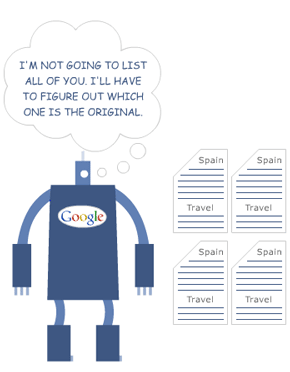 A few duplicate pages here and there probably won’t hurt you, but when in doubt, create your own content instead of using what you’re given and keep your syndication to a minimum. Alternately, you can use a rel=”canonical” tag to indicate which pages are the originals, if duplicates arise that you don’t want to remove.
A few duplicate pages here and there probably won’t hurt you, but when in doubt, create your own content instead of using what you’re given and keep your syndication to a minimum. Alternately, you can use a rel=”canonical” tag to indicate which pages are the originals, if duplicates arise that you don’t want to remove.
FURTHER READING: Duplicate content: causes and solutions (yoast)
Paid Links Penalty
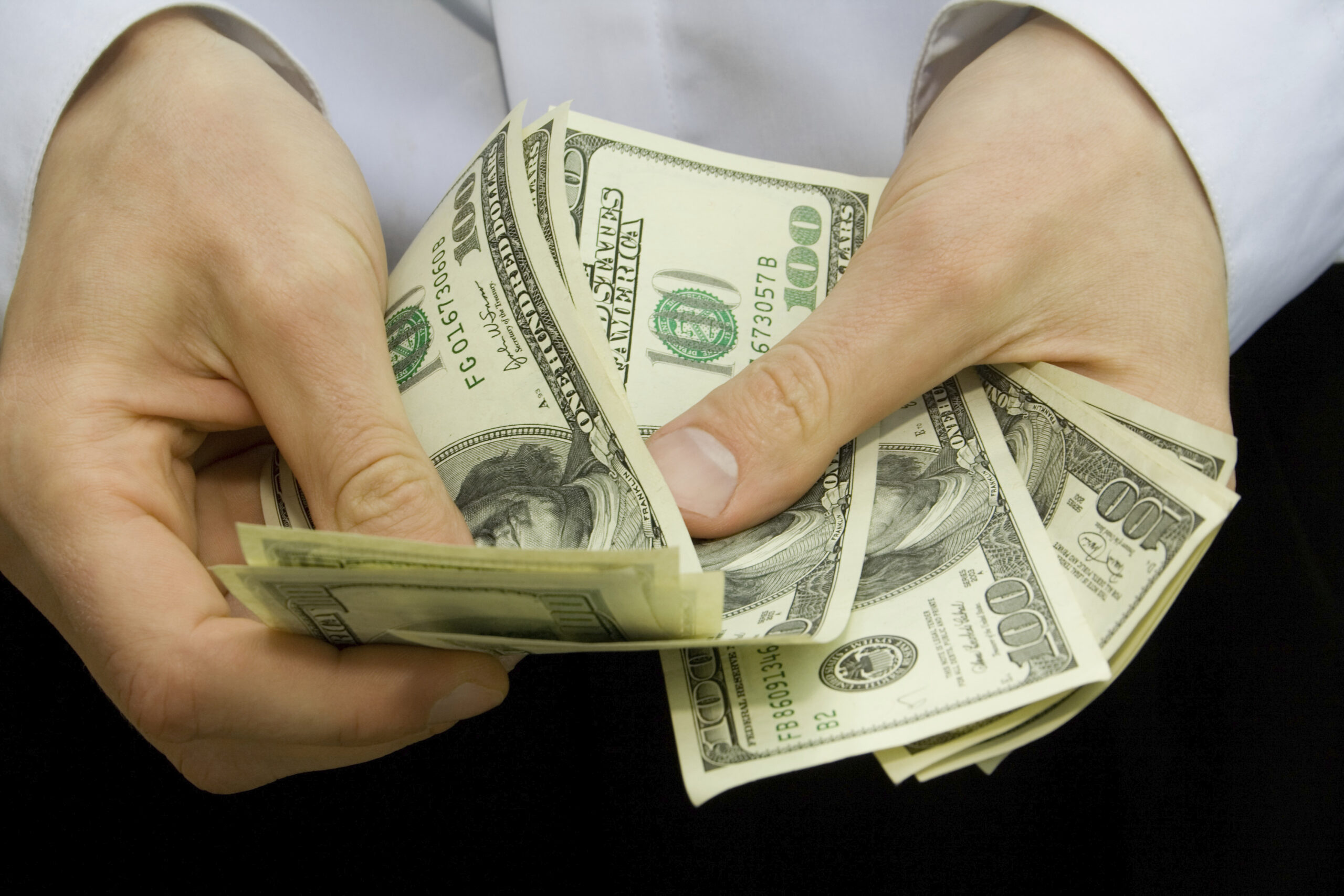 THE RUMOR: If you are found to be buying links to your website, you can be removed from Google completely.
THE RUMOR: If you are found to be buying links to your website, you can be removed from Google completely.
FACT OR FICTION: Fact.
The same is also true for those found to be selling links.
THE PENALTY EXPLAINED: While there is no paid links penalty, per se, Google does have a broad “unnatural links” penalty that can be applied to those found to be participating in “link schemes.” This penalty can apply to websites found to be obtaining links in large quantities in any artificial or spammy method, including software, excessive link exchanges or guest posts, or by buying and selling links. Google thinks that links should be done naturally, and for the benefit of those using the web to learn — not for the benefit of a website’s ranking. If you are found or suspected to be paying for links, your links or your site — or both — can be penalized, which may result a full disappearance from the SERPs until the links are removed.
FURTHER READING: Link schemes (Webmaster Tools Help)
Google Image Penalty
THE RUMOR: If an image hosted on your website appears differently in a search on Google Images, you can receive a manual penalty for a “mismatch.”
FACT OR FICTION: Fact!
THE PENALTY EXPLAINED: Introduced in 2013, Google’s “Image Mismatch” manual action can be applied to websites that appear to be intentionally deceiving Google Images by forcing the search engine to index (or include in search results) images that do not match what visitors see when they visit the website.
It may also be applied to sites using anti-hotlink or auto-watermarking software to protect their images from theft. 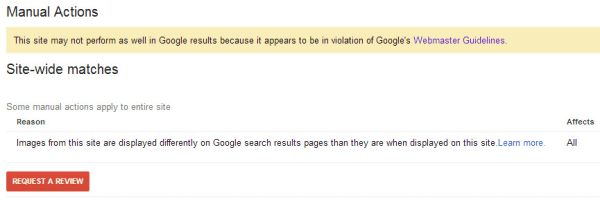 If you have no idea how this would apply to your website, don’t worry about it: chances are, you’ll never have to worry about this penalty. However, this penalty does affect sites that may try to “trick” users into visiting for an image that is never delivered, like desktop wallpaper or image database websites…
If you have no idea how this would apply to your website, don’t worry about it: chances are, you’ll never have to worry about this penalty. However, this penalty does affect sites that may try to “trick” users into visiting for an image that is never delivered, like desktop wallpaper or image database websites…
so if you run one of those, be careful! FURTHER READING: Image Mismatch: The Latest Webmaster Tools Manual Action (Search Engine Land)
Single Keyword Penalty
THE RUMOR: Your website can be penalized for a single keyword, and kept from ranking for said keyword, while everything else appears normal.
FACT OR FICTION: Fact.
THE PENALTY EXPLAINED: Not all of Google’s manual penalties apply to the entire website. Some of these penalties are called “Partial matches,” and may apply only to certain portions of your website.
So if Google detects unnatural behavior related to a specific page, URL, link, and so on, it can penalize that specific item, while the rest of your website is left intact. 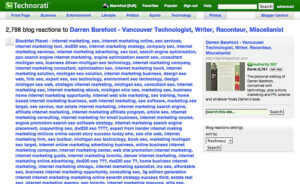 This penalty — which is better called a Partial match manual action — can lead to your site being removed from the SERPs for a specific keyword. For example, if Google thinks your pet supply store has been placing too many spammy links in poorly written guest blog posts to rank well for the keyword “dog collars,” it can simply wipe you out of the SERP for that keyword…
This penalty — which is better called a Partial match manual action — can lead to your site being removed from the SERPs for a specific keyword. For example, if Google thinks your pet supply store has been placing too many spammy links in poorly written guest blog posts to rank well for the keyword “dog collars,” it can simply wipe you out of the SERP for that keyword…
but leave you alone for “cat collars.” How this penalty actually appears in Webmaster Tools depends on what caused it to become a penalty in the first place. In the example above, you’d probably see Partial match — Unnatural links to your site. But if the problem was that you were writing very short, keyword-stuffed pages trying to rank for “dog collars,” you’d instead see Partial match — Thin content with little or no added value.
FURTHER READING: Manual Actions (Webmaster Tools Help)
Over-Optimization Penalty
THE RUMOR: You can “over-SEO” your website to the point of being penalized for it.
FACT OR FICTION: Half fact, half fiction.
THE PROBLEM WITH OVER-OPTIMIZATION: In 2012, Google’s Matt Cutts stated that the search engine was working on an “over-optimization” penalty.
Then, in April, the first Penguin algorithm update rolled out. Penguin was designed to punish sites manipulating the SERPs with unnatural links, including paid links, spammy links, and links with heavy anchor text (ex. linking to a page with the text “Dog Collars” with the intent of ranking it for “dog collars”).
This is likely how this myth started. To be clear, there’s no one penalty designed to punish a website found to be overdoing their SEO. However, depending on what you’re doing, you may be at risk of encountering the Penguin update, or even a being hit with a manual penalty.
So if you’re building a ton of links with specific anchor text, or writing hundreds of keyword-stuffed pages, you’re probably going to run into some kind of penalty eventually.
FURTHER READING: How to Avoid Over-Optimizing Your Site (KISSmetrics)
404 Penalty
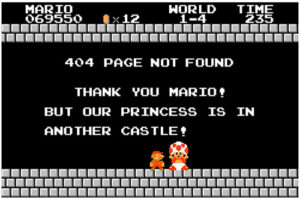 THE RUMOR: If your website has too many 404s, you can be penalized.
THE RUMOR: If your website has too many 404s, you can be penalized.
FACT OR FICTION: Fiction, but…
THE MYTH EXPLAINED: No, accidentally mistyping a URL or deleting a page won’t result in a penalty — not even on a huge scale. But 404 not found pages, which occur when you try to access a page that doesn’t exist on the website’s server, can be problematic for you in other ways. They can frustrate visitors to your site, which can in turn impact metrics like bounce rate, which Google does use to determine your ranking.
So keep an eye on 404s, and try to eliminate them wherever possible.
FURTHER READING: The ultimate guide to the 404 status code and SEO (Econsultancy)
Slow Site Penalty
THE RUMOR: There’s a Google penalty for slow sites.
FACT OR FICTION: Fiction… but site speed does affect your ranking.
THE MYTH EXPLAINED: There is no penalty, per se, for having a slow website… but Google does favor faster sites in its search results.
If the search engine is given the choice between two sites with similar factors, but one loads 2 seconds faster than the other, the faster site will always outrank it.
FURTHER READING: Why Faster Websites Make More Money (WebFX)
Google Authorship Penalty
THE RUMOR: You can be penalized for using Google Authorship on too many of your pages, or using it inappropriately.
FACT OR FICTION: Previously fact, now fiction, because Google Authorship doesn’t exist.
THE FORMER PENALTY EXPLAINED: Prior to the complete removal of Google Authorship support in August of 2014, Google was spotted issuing warnings to those who used the authorship markup on pages that did not have an author, like website homepages, in an attempt to attract additional clicks in searches. These penalties were few and far between, but they did happen.  Now that authorship has gone the way of the dodo, this penalty is no longer anything to worry about.
Now that authorship has gone the way of the dodo, this penalty is no longer anything to worry about.
However, there is still a risk that you can be penalized for inappropriate use of Google’s rich snippets feature. As this Search Engine Watch article details, webmasters who mark up pages inappropriately (for example, adding reviews to pages where there are none) can be dealt a penalty and removed from the SERPs until they fix the problem.
FURTHER READING: Google Removes Author Photos From Search (Search Engine Land)
Guest Blogging Penalty
 THE RUMOR: You can be penalized for publishing posts by guest bloggers on your site.
THE RUMOR: You can be penalized for publishing posts by guest bloggers on your site.
FACT OR FICTION: Potentially fact, but only as a result of other related harmful behaviors. A “guest blogging penalty” on its own is fiction.
HOW GUEST BLOGGING CAN BE HARMFUL: In January of 2014, Matt Cutts published a post on his blog declaring the end of guest blogging for SEO.
A few months later, Google added “low-quality guest blog posts” to its “Little or no original content” penalty page. This is likely where this rumor started. Although there’s no real penalty for guest blogging, guest posts can put you at risk for penalties if they:
- Contain links to unrelated or harmful websites
- Are thin, unoriginal, or duplicated
- Are keyword-stuffed in an attempt to rank highly
To avoid getting into trouble as a result of accepting guest contributions, carefully review each post you accept. You can also nofollow links you’re unsure about, which keeps your site out of harm’s way, as far as link penalties go.
FURTHER READING: Don’t Accept Guest Posts Unless You Follow These 7 Rules (Quick Sprout) Those are all the penalty myths we have to cover right now! As we hear of others, we may include them in this post; feel free to leave a comment if you’ve heard a rumor about a particular penalty you’d like us to address.
What Are the Real Google Penalties I Should Know About?
So, with all these myths busted, you may be wondering which penalties are real and worth knowing about.
Here’s a list of Google penalties/manual actions and algorithm updates, as well as some related links, that I hope will help:
- Spam — including spam in structured markup, pure spam, user-generated spam, and cloaking
- Hacked website
- Hidden text and keyword stuffing
- Thin content with little or no added value
- Image mismatch
- Unnatural links — either to your site, from your site, or to your site – impacts links
- Panda update
- Penguin update
- Hummingbird update
- Pigeon update
These items are the real deal and have been verified by Google. In the future, if you hear about a rumored Google penalty, you can check any of the sites linked throughout this post (including Google’s Webmaster Tools Help page) to verify whether or not it’s true.
In Conclusion
I hope this myth-busting session has shed some light on which penalties and manual actions are real, and which ones are just a work of fiction. If you have any questions about this post, or would like to suggest an additional myth or rumor for us to bust, please feel free to leave a comment below!
If you’re looking for some help dealing with a Google penalty — or what you suspect might be one — check out our Expert’s Guide to Google Penalty Removal, or learn about manual actions and the penalty recovery services we offer for our clients. Thanks for reading! Image/photo credit: Ken Teegardin (CC BY-SA 2.0), Moz, Search Engine Land (1, 2) DBarefoot, Bluefaqs, c_ambler
-
 Trevin serves as the VP of Marketing at WebFX. He has worked on over 450 marketing campaigns and has been building websites for over 25 years. His work has been featured by Search Engine Land, USA Today, Fast Company and Inc.
Trevin serves as the VP of Marketing at WebFX. He has worked on over 450 marketing campaigns and has been building websites for over 25 years. His work has been featured by Search Engine Land, USA Today, Fast Company and Inc. -

WebFX is a full-service marketing agency with 1,100+ client reviews and a 4.9-star rating on Clutch! Find out how our expert team and revenue-accelerating tech can drive results for you! Learn more
Try our free SEO Checker
Boost your site’s search performance with our free SEO Checker. Analyze your website for optimization tips on titles, headers, content, speed, and more. Get a free report now to enhance rankings on Google, Bing, Yahoo, and beyond!
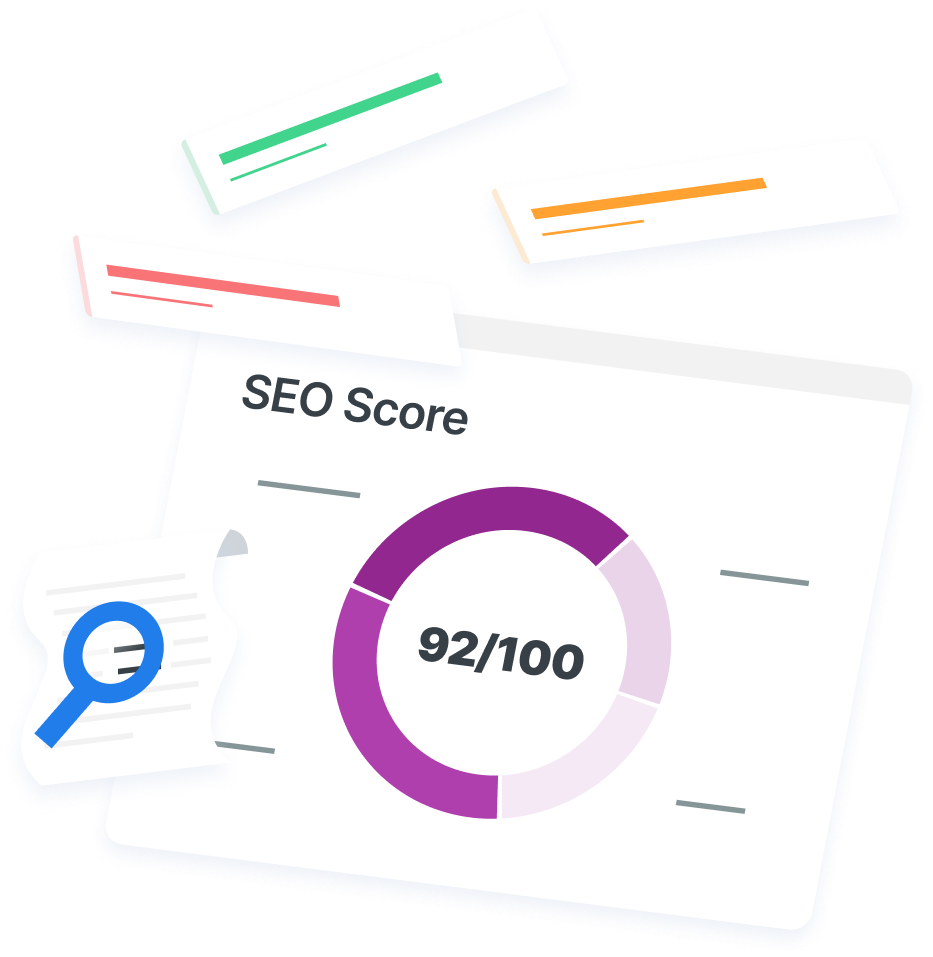

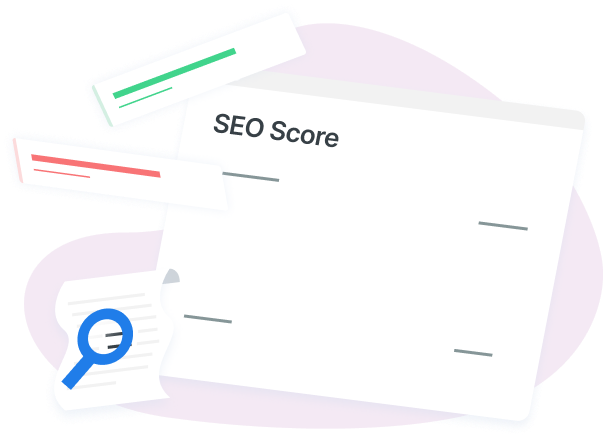
How Is Your Website’s SEO?
Use our free tool to get your score calculated in under 60 seconds.
Try our free SEO Checker
Boost your site’s search performance with our free SEO Checker. Analyze your website for optimization tips on titles, headers, content, speed, and more. Get a free report now to enhance rankings on Google, Bing, Yahoo, and beyond!


